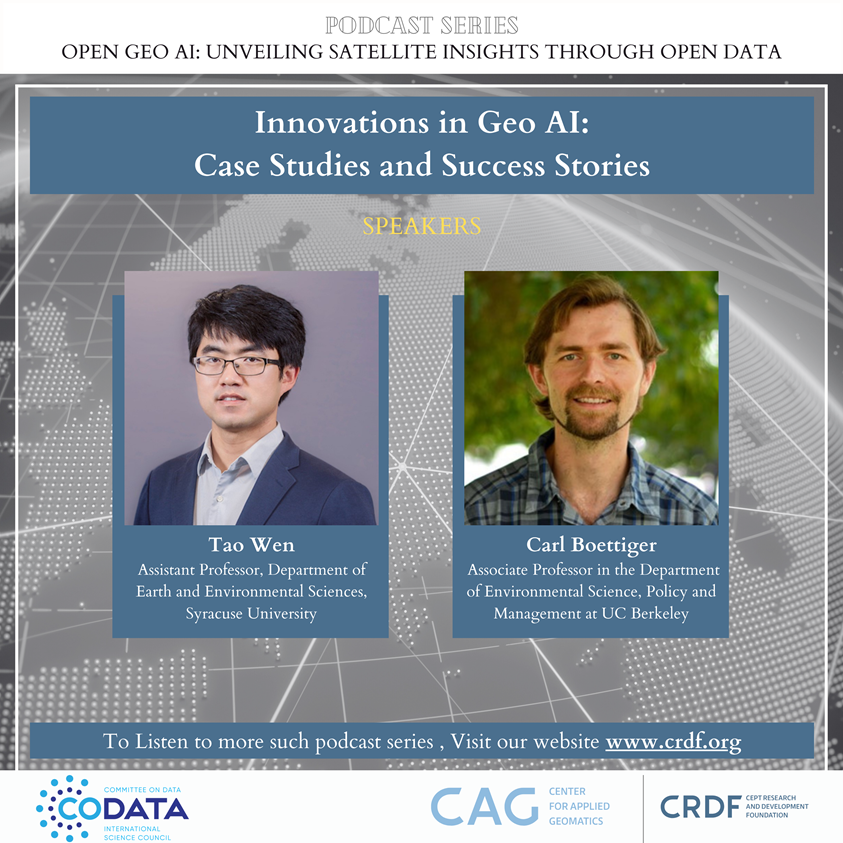 Join us for a captivating conversation in the episode 6 of podcast series “Open Geo AI: Unveiling Satellite Insights through Open Data.”
Join us for a captivating conversation in the episode 6 of podcast series “Open Geo AI: Unveiling Satellite Insights through Open Data.”
Episode 6 – Innovations in Geo AI: Case Studies and Success Stories
In this podcast on Innovations in Geo AI: Case Studies and Success Stories, Tao Wen and Carl Boettiger shares real-life success stories at the intersection of open data, AI, and satellite information. From ML models for land-water systems to open science initiatives, explore how diverse sectors leverage time series models, R environments, and NASA’s Open Scripts project on AWS Cloud for transformative decision-making.
Tao Wen is an Assistant Professor in the Department of Earth and Environmental Sciences at Syracuse University. His research interests span from Geochemistry, Environmental Data Science, and Hydrogeology. He joined Syracuse University in 2020 after a postdoctoral study 2017-2020 at Penn State University and finishing his Ph.D. in geology in 2017 at the University of Michigan. He received a B.S. in Environmental Sciences in 2011 from the University of Science and Technology of China.
Tao Wen is a geochemist with additional expertise in data sciences driven by a research interest in the interface between humankind and the water cycle. His team uses field-based and geochemical laboratory-based approaches (e.g., noble gases, stable isotopes, and water chemistry) to shed light on the environmental implications of human activities on water resources. His team also develops and applies data science tools to explore the spatiotemporal patterns of coupled water and element cycles at various scales in the coupled natural and human systems.
Carl Boettiger works on problems in ecological forecasting and decision making under uncertainty, with applications for global change, conservation and natural resource management. I am particularly interested in how we can predict or manage ecological systems that may experience regime shifts: sudden and dramatic changes that challenge both our models and available data. The rapid expansion in both computational power and the available ecological and environmental data enables and requires new mathematical, statistical and computational approaches to these questions. Ecology has much to learn about what are and are not useful from advances in informatics & computer science, just as it has from statistics and mathematics. Traditional approaches to ecological modeling and resource management such as stochastic dynamic systems, Bayesian inference, and optimal control theory must be adapted both to take advantage of all available data while also dealing with its imperfections. My approach blends ecological theory with the synthesis of heterogeneous data and the development of software — a combination now recognized as data science.
https://crdf.org.in/podcast/
Watch all episodes here: https://codata.org/initiatives/data-skills/codata-connect/open-geo-ai-unveiling-satellite-insights-through-open-data-podcast-series/
